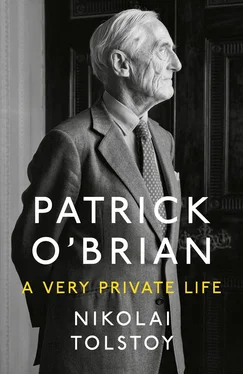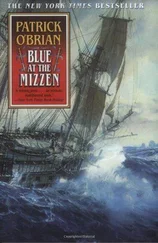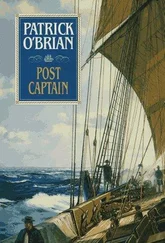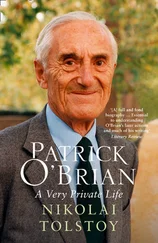1 ...8 9 10 12 13 14 ...42 Reviews in the press were largely favourable: in some cases, enthusiastic. The novelist L.A.G. Strong perceptively described him as ‘A real new writer, with a voice of his own. He shows a real power to describe physical sensations.’ Patrick’s response to all this was guarded. In a letter to his editor Roger Senhouse written in the following February, he provided an assessment of critics which came from the heart: ‘I do grow passionate about criticism from fools, from people who have not really read what they criticise and from those whose aim is to show off; but I am really grateful for genuine criticism.’ [fn12] Конец ознакомительного фрагмента. Текст предоставлен ООО «ЛитРес». Прочитайте эту книгу целиком, купив полную легальную версию на ЛитРес. Безопасно оплатить книгу можно банковской картой Visa, MasterCard, Maestro, со счета мобильного телефона, с платежного терминала, в салоне МТС или Связной, через PayPal, WebMoney, Яндекс.Деньги, QIWI Кошелек, бонусными картами или другим удобным Вам способом.
He welcomed Senhouse’s comments on his next book, but clearly had coverage of The Last Pool in mind, for he continued with some sharp reflections on ‘the damned silly review Dunsany produced in the Observer. Did you see any worthwhile reviews of The Last Pool? I only saw a long and offensively fulsome one in the Irish Times, and a short and stupid one in the Spectator, apart from the Observer.’
At first glance, Patrick’s testy dismissal of the Observer review appears perverse. Lord Dunsany, a well-connected Irish peer, literary figure and keen rider to hounds, was surely ideally placed to review such a book. What seems particularly to have riled Patrick was a well-intentioned laudatory comment, much canvassed since: ‘This charming book by an Irish sportsman is a genuine collection of tales of the Irish countryside.’ For a start, it might suggest that Dunsany had done little more than glance through the text. Although five of the thirteen tales have Irish settings, a careful reader would have noted that the three located in Wales evince a much more fundamental grounding in local toponymy, landscape and speech.
Still more upsetting appears to have been Dunsany’s gratuitous allusion to the author as ‘an Irish sportsman’. This was presumably inferred by Dunsany from Patrick’s surname, [fn13] Конец ознакомительного фрагмента. Текст предоставлен ООО «ЛитРес». Прочитайте эту книгу целиком, купив полную легальную версию на ЛитРес. Безопасно оплатить книгу можно банковской картой Visa, MasterCard, Maestro, со счета мобильного телефона, с платежного терминала, в салоне МТС или Связной, через PayPal, WebMoney, Яндекс.Деньги, QIWI Кошелек, бонусными картами или другим удобным Вам способом.
together with the Irish setting of several of the stories. That an influential Irish writer publicly hailed him as a compatriot placed Patrick in an embarrassing quandary. As was explained in the first volume of this biography, his change of name was selected in order to banish an unbearable past – not to invent a new one. An obsessively private individual, the last thing he wanted was to find his personal life paraded before an inquisitive public. After all, Dunsany’s erroneous assumption could lead to his being derided as an imposter. What could he do? A correction (in the unlikely event of the newspaper’s publishing it) must inevitably invite enquiry into his actual background.
While this might be criticized as an absurdly paranoid reaction, it was to become unexpectedly justified when belated revelation of his change of name half a century later aroused bitter diatribes in the media beyond anything Patrick at his most vulnerable might have anticipated. He instinctively believed a substantial body of the literati to be an innately envious and consequently malevolent crew. Sadly, he lived to find this jaundiced view not altogether mistaken. It may surely be enquired, were he as concerned to lay claim to Irish ancestry as ill-natured critics have proclaimed, why he did not seize the opportunity to do so in The Last Pool , nor seek to profit from Lord Dunsany’s flattering allusion. [fn14] Конец ознакомительного фрагмента. Текст предоставлен ООО «ЛитРес». Прочитайте эту книгу целиком, купив полную легальную версию на ЛитРес. Безопасно оплатить книгу можно банковской картой Visa, MasterCard, Maestro, со счета мобильного телефона, с платежного терминала, в салоне МТС или Связной, через PayPal, WebMoney, Яндекс.Деньги, QIWI Кошелек, бонусными картами или другим удобным Вам способом.
When Patrick came under pressure by publishers on other occasions to provide autobiographical notices, he either evaded doing so altogether, or submitted some patently humorous fantasy. The dustjacket of his early novel Hussein (1938), for example, informed its readers:
Patrick Russ has seen much of life in his 26 years. When he was stoking a Portuguese tramp steamer, he came to Rabat and made the acquaintance of two professional story-tellers with whom he wandered up and down French Morocco for a couple of months. It was from them, conversing in mixtures of French and Berber Arabic that he got much of the material widely current throughout the Mohammedan world, which goes to form the story of Hussein.
It is presumably the rarity of this dustjacket which has thus far protected Patrick from being accused by humourless critics of intending these imaginative exploits to be taken au pied de la lettre. [11] Конец ознакомительного фрагмента. Текст предоставлен ООО «ЛитРес». Прочитайте эту книгу целиком, купив полную легальную версию на ЛитРес. Безопасно оплатить книгу можно банковской картой Visa, MasterCard, Maestro, со счета мобильного телефона, с платежного терминала, в салоне МТС или Связной, через PayPal, WebMoney, Яндекс.Деньги, QIWI Кошелек, бонусными картами или другим удобным Вам способом.
Although beautifully written, the stories in The Last Pool proved to be no more than a swansong to the otherwise alarmingly arid period from which he was at last emerging. I have described in the first volume of this biography how they were spasmodically compiled over the decade of 1939–49, during which time the interruption caused by wartime employment, followed by nearly four years of mounting writer’s block, eventually brought to fruition no more than this sparse collection. After their luncheon meeting in August 1949, Fredric Warburg noted: ‘I gathered that in this field he had, for the moment, written himself out.’ In fact, all he had had in mind for further writing was ‘a book on the French Catalans’.
It appears, however, that not long after their arrival at Collioure, Patrick began to find memories of life at Cwm Croesor flooding back. Now distanced from the life of hardship and frustration they had endured there, he began to picture it all anew in his mind’s eye. In a notebook he jotted down a plan for a novel set in the dark valley:
Читать дальше












